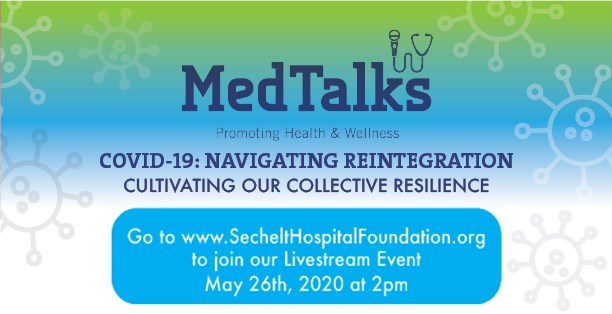How do you support other people and their feelings of loneliness? How to approach a loved one who seems to be turning inward during these scary times, when you yourself might be feeling lonely or even a bit burnt out?
This was the first virtual question posed during the recent MedTalks Live discussion focused on loneliness and connection, led by integrative medical physician and mindfulness expert Dr. Rahul Gupta, registered psychologist specializing in traumatic stress, Dr. Lisa Kitt, and Vancouver Coastal Health lead for mental health and substance use services on the Coast, Dr. Marius Welgemoed.
The trio’s answers and exchange around the above question are below, edited for clarity and brevity:
Welgemoed: If you know someone who is lonely and they’re struggling, it is very reasonable to open up that discussion. And then the thing I have to do in my personal journey is refrain from wanting to fix… Don’t give too much advice.
Kitt: Just show up and be, and connect. Take a pot of flowers over, put them outside the door, and talk from six feet away for a few minutes. I also want to normalize that people are going inward right now, it’s been a very stressful time, and so reach out, have a metaphorical extension of the hand.
Welgemoed: We have a fundamental need that others should know how we feel, so reaching out and acknowledging someone’s feelings is powerful. Maybe we can’t do much about it, but that is connecting in itself.
Gupta: One of the ways we can experience loneliness is if we are doing a lot of caregiving, and we feel like we have to be strong for other people who are suffering. Then we can feel lonely in the fact that we can’t even be seen for our own challenges. So for the caregiver in that question, just call that person and say, ‘I sense you’re lonely, I’m lonely too, and we might be lonely for different reasons.’ A beautiful way to connect with people is to go for a silent walk in nature, six feet apart, to connect with another person just through physical proximity. Be with the person without having to give much, or fix anything.
The panel all reported hearing various takes on loneliness and connection from their clients – from those who crave more connection and struggle with its lack, to others who find the imposed isolation restful and freeing. We all have different levels of need for the company of others even though human beings are fundamentally wired for connection.
Find all MedTalks at www.sechelthospitalfoundation.org/upcoming-medtalks The next talk is May 26: “Navigating Reintegration: Cultivating our Collective Resilience.”
To send in your questions and suggestions for future talks, see www.sechelthospitalfoundation.org/live
– By Angelina Theilmann, Sechelt Hospital Foundation



